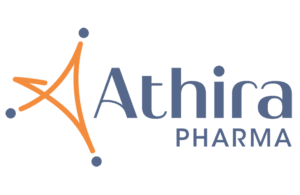 The biopharma Athira Pharma (Nasdaq: ATHA) has lengthened the current open-label extension (OLEX) study for its Phase 3 LIFT-AD and Phase 2 ACT-AD trials of fosgonimeton (ATH-1017, NDX-1017), hepatocyte growth factor receptor agonist, focused on mild-to-moderate Alzheimer’s disease.
The biopharma Athira Pharma (Nasdaq: ATHA) has lengthened the current open-label extension (OLEX) study for its Phase 3 LIFT-AD and Phase 2 ACT-AD trials of fosgonimeton (ATH-1017, NDX-1017), hepatocyte growth factor receptor agonist, focused on mild-to-moderate Alzheimer’s disease.
The Bothell, Washington–based company made the decision based on feedback from its independent data and safety monitoring board.
ATHA shares fell about 3% to $8.89 in early afternoon trading.
Last October, the company’s former CEO, Leen Kawas, stepped down amidst research misconduct allegations, and Athira’s then-chief operating officer, Mark Litton, assumed the mantle of CEO.
In June 2021, the company announced they had put Kawas on leave. After the announcement, its stock dipped 39%.
In the recent news announcement, Athira said that participants in the LIFT-AD or ACT-AD studies could elect to join the open-label extension that provides up to 18 months of additional treatment.

Mark J. Litton
The LIFT-AD and ACT-AD studies are double-blind and placebo-controlled.
Participants in the studies are randomized 1:1:1 to receive low dose fosgonimeton (40 mg/day), high dose fosgonimeton (70 mg/day) or a placebo.
Fosgonimeton has been the focus of seven studies with indications including Alzheimer’s disease, dementia and Parkinson’s disease.
Athira believes the drug candidate also has potential for various dementia types. It anticipates that fosgonimeton could be a first-in-class regenerative therapy for conditions ranging from Alzheimer’s to dementia with Lewy bodies. The drug could potentially reverse synaptic disconnection and neuronal loss in such patients.
Athira has concluded that the hepatocyte growth factor receptor agonist (HGF) and mesenchymal-epithelial transition factor (MET) system may be impaired in patients with neurodegeneration.
In a recent interview with NPR’s BioTech Nation, Athira CEO Mark Litton explained that HGF is a naturally occurring repair mechanism that the body uses to restore nerve cells.
“We do know that HGF and its receptor have been reduced in Alzheimer’s patients,” Litton said.
The company’s strategy is to improve the function of HGF in the body. “One of the key aspects of the platform and our technology is identifying and discovering these small molecules that cross the blood-brain barrier,” Litton said. “And that is exactly what our lead molecule does.”